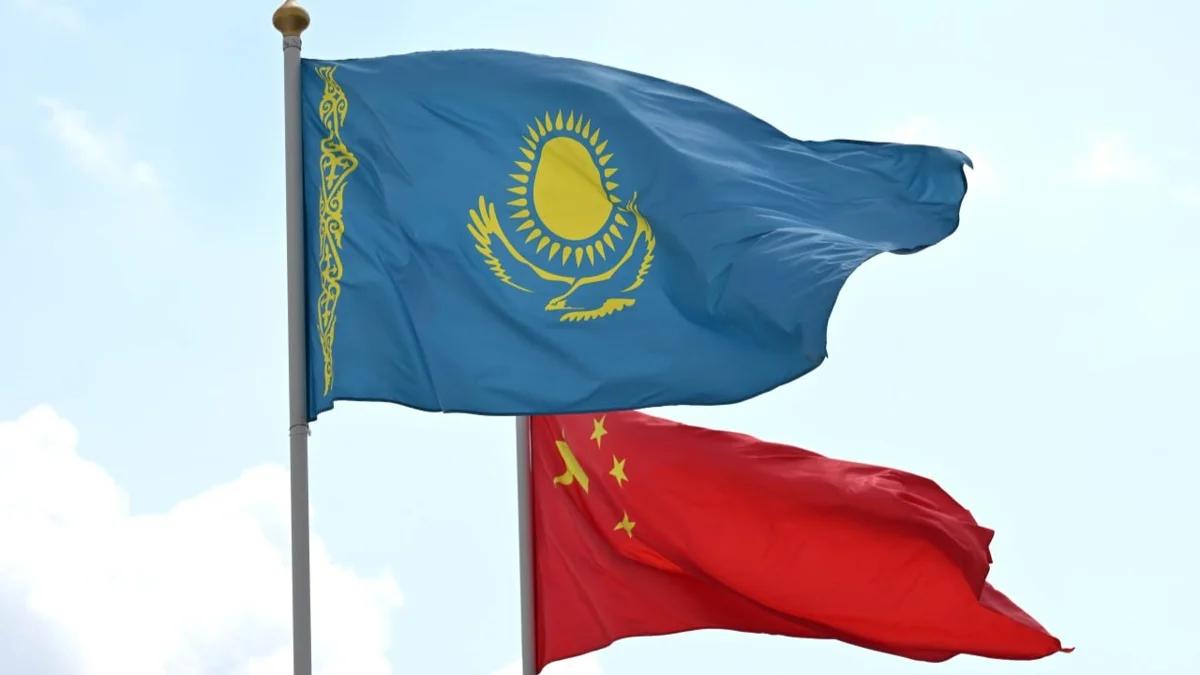Kazakhstan-China Partnership: Reviving Historical Ties through Strategic Cooperation and Economic Growth




China-Kazakhstan Strategic Partnership: From SCO Leadership to Belt and Road Cooperation
The strategic partnership between China and Kazakhstan represents one of the most significant bilateral relationships in Central Asia, exemplified by their collaborative leadership within the Shanghai Cooperation Organization and their deep integration through the Belt and Road Initiative. This comprehensive partnership, spanning diplomatic, economic, and infrastructural dimensions, demonstrates how two nations can leverage geographical proximity and shared strategic interests to create mutual prosperity and regional stability.
The recent 25th anniversary of the Shanghai Cooperation Organization Summit, held in Tianjin, China, showcased Kazakhstan's fundamental importance within this multilateral framework. As a founding member, Kazakhstan has consistently contributed to the SCO's evolution from its inception, with former President Nursultan Nazarbayev playing a direct role in establishing the organization's foundational principles.
Under President Kassym-Jomart Tokayev's leadership, Kazakhstan continues to champion the SCO's mission of promoting an equitable multipolar world order. The organization's agenda perfectly aligns with Kazakhstan's foreign policy objectives, emphasizing sustainable development, non-interference in domestic affairs, and equitable international trade practices. This alignment has positioned Kazakhstan as a bridge between diverse regional interests and global aspirations.
The summit's historic "SCO Plus" format, featuring participation from the UN Secretary-General and multiple heads of state, demonstrated the organization's expanding global influence. Kazakhstan's role in facilitating these broader dialogues underscores its diplomatic sophistication and commitment to multilateral cooperation. The nation's upcoming hosting of the 24th SCO summit in 2024, themed "Strengthening Multilateral Dialogue - Striving for Sustainable Peace and Prosperity," further emphasizes its leadership within the organization.
The economic relationship between China and Kazakhstan represents a modern renaissance of their historical Silk Road connections. Since establishing diplomatic relations in 1992, these two nations have systematically upgraded their partnership through several key milestones: achieving strategic partnership status in 2005 and establishing a permanent comprehensive strategic partnership in 2019.
This diplomatic progression has yielded remarkable economic results. Bilateral trade has experienced unprecedented growth, surging from USD 28.59 billion in 2013 to USD 44 billion by 2024, firmly establishing China as Kazakhstan's largest trading partner. This dramatic increase reflects not merely quantitative growth but qualitative deepening of economic integration across multiple sectors.
Chinese investments have served as a primary catalyst for this economic transformation. Since 2005, Chinese enterprises have invested over USD 27 billion in Kazakhstan, primarily targeting energy sectors including oil and gas exploration, as well as technological advancement initiatives. These investments represent more than capital flows; they embody a strategic recognition of Kazakhstan's pivotal role in China's energy security framework.
The Belt and Road Initiative has transformed the China-Kazakhstan partnership into a cornerstone of Eurasian connectivity. Kazakhstan's strategic geographical position, serving as a natural bridge between Asia and Europe, makes it an indispensable component of China's vision for enhanced global trade corridors.
Kazakhstan's "Nurly Zhol" economic stimulus program demonstrates perfect alignment with BRI objectives, creating synergistic opportunities for infrastructure development and trade facilitation. The Dostyk-Moyynty railway project exemplifies this cooperation, designed to increase Kazakhstan's transit capacity along the crucial China-Europe corridor by fivefold, fundamentally transforming the nation's role in international logistics.
The establishment of comprehensive logistics networks extends beyond terrestrial connections. The development of a container hub at Kazakhstan's Aktau port, constructed in collaboration with China's Lianyungang port, represents a revolutionary advancement in Caspian Sea shipping capabilities. This maritime cooperation creates new possibilities for trade route diversification and enhances Kazakhstan's position as a Eurasian commercial nexus.
Energy cooperation forms the bedrock of China-Kazakhstan economic relations, creating a relationship of strategic interdependence that benefits both nations significantly. Kazakhstan's abundant fossil fuel resources perfectly complement China's massive energy requirements, creating natural synergies that drive bilateral cooperation.
The scale of energy trade reflects this interdependence's depth. In 2023, China imported 6.41 million tons of crude oil and 5.8 billion cubic meters of natural gas from Kazakhstan, demonstrating the substantial role Kazakhstani energy plays in China's economic development. These imports represent more than commercial transactions; they constitute strategic partnerships ensuring China's energy security while providing Kazakhstan with reliable market access and substantial revenue streams.
Investment in energy infrastructure has catalyzed broader technological and industrial modernization within Kazakhstan. Chinese participation in oil and gas sector development has introduced advanced technologies and management practices, enhancing Kazakhstan's production capabilities while creating employment opportunities and knowledge transfer benefits for local communities.
The development of transportation infrastructure represents a critical component of China-Kazakhstan cooperation, with both nations recognizing that enhanced connectivity drives economic growth and regional integration. Their collaborative approach to infrastructure development exemplifies how strategic partnerships can create win-win scenarios for participating countries.
Railway development projects form the backbone of this transportation cooperation. The expansion of rail connections between Chinese and Kazakhstani cities, particularly through the Dostyk border crossing, has dramatically increased cargo handling capacity and reduced transportation costs for goods moving between Asia and Europe. These improvements have positioned Kazakhstan as an increasingly attractive transit route for international trade.
The integration of transportation networks extends beyond bilateral benefits to create regional advantages. Kazakhstan's enhanced connectivity serves broader Central Asian development goals, providing landlocked neighbors with improved access to global markets through Chinese ports and transportation networks. This regional dimension of China-Kazakhstan cooperation demonstrates how bilateral partnerships can generate positive spillover effects for entire regions.
The China-Kazakhstan strategic partnership continues evolving, with both nations recognizing enormous potential for expanded cooperation across multiple sectors. Their collaboration within the SCO framework provides a multilateral platform for addressing regional challenges while pursuing shared development objectives.
Technological cooperation represents an emerging frontier for bilateral relations. As both countries pursue digital transformation and industrial modernization, opportunities for collaboration in telecommunications, renewable energy, and advanced manufacturing are expanding rapidly. Kazakhstan's commitment to economic diversification aligns perfectly with China's expertise in technology transfer and industrial development.
The environmental dimension of their partnership is gaining increasing importance. Both nations recognize the necessity of sustainable development practices and are exploring cooperation in renewable energy projects, environmental protection initiatives, and green technology development. This environmental focus reflects their long-term commitment to responsible economic growth.
The success of China-Kazakhstan cooperation provides a valuable model for other nations seeking to develop strategic partnerships based on mutual respect, shared interests, and complementary strengths. Their experience demonstrates that geographical proximity, combined with political will and strategic vision, can create partnerships that generate substantial benefits for participating countries while contributing to broader regional stability and prosperity.
Comments